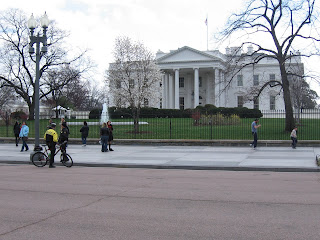 DRIVING HABITS
DRIVING HABITSI spent two nights in Moscow before my departure. On my first night I stayed with my friends, and on the second with my cousin brother's family. Both families are adorably hospitable. When I stayed with them, I did what people usually do when they visit friends and stay for a night: I was fed, and we chatted, and we looked at photos of our families and mutual friends, and I hung about uselessly while the hostess was preparing my bed for the night and the host was talking about his work and automobile. My lovely Moscow niece is not a kid any more. She has grown and is a college graduate, and teaches English now, and we are colleagues, and, oh boy, doesn't time fly?!
In the morning, they would give me a lift. My friends Ilya and Tanya took me to a downtown subway station, and my brother to the Sheremetyevo international airport. Thanks for the lift, guys. More thanks for not having been killed on the way. Now I must tell you about driving habits of Moscovites.
When we left my friends' house on a colder-than-expected morning and I saw a bright yellow automobile with tanned window glasses, I felt some kind of premonition. Once we were all inside, Ilya pressed the accelerator pedal to the floor and the car leaped forward. We drove in the labyrinth of Moscow yards, driving occasionally on sidewalks, scaring away pedestrians and stray dogs, at the average speed of 60 km (40 miles) per hour in a Formula-One style.
A couple of times we found ourselves in a cul-de-sac and had to back off. At one point, when we were backing busily out of a yard, we nearly bumped into another car that was also backing off, from a neighboring yard. Both automobiles stopped, as the drivers tried to figure out which of them shoulf yield. The traffic regulations give no hint at what to do in such a case. After a moment of hesitation, Ilya drove on, or rather drove back. Ours was a yellow automobile, after all.
On the next, warmer-than-expected, morning my cousin brother gave me a lift to the airport. We drove out of the yard at a comfortable speed of 60 km (40 miles) per hour, and onto the main road. As we did, we missed a passing automobile only by an inch or two, and only because it was traveling fast enough to miss us. It dodged and then screeched away angrily.
If you have ever driven a bumper car in an amusement park, then you definitely know what I am talking about. If you haven't, go and enjoy a ride. And don't be cheap - buy two tickets, and do it twice. And then reread this entry. Now you
do know what driving Moscow-style is.
Next time I go to Moscow, I hope to stay at my friends' and my cousin brother's places again. They are nice, and hospitable, and give an insight into Moscow lifestyle. Thanks, guys!
CROWD MANAGEMENTRussia is country in which crowd management is not a science, but an art. As I entered subway stations, I saw long lines of people wanting to buy a ticket. Usually, only one or two ticket booths work. People in the line looked gloomy and doomed. Rarely do I see 30 to 50 people collected in one place who so thoroughly fail to enjoy themselves.
I also see profeteers who offer people to buy tickets from them, Two entrepreneurs were selling tickets for 20 roubles per a ride, while two others stood in a line, one in front and one in the middle. Obviously, they buy more tickets on an ongoing basis.
One subway ride in Moscow costs 19 roubles. But if you buy a ticket for 5 rides, you pay something like 18 RUR, and if you buy a ticket for 10 rides, you pay 15.5 RUR. Therefore, ticket touts net the profeteers 5 to 22.5%. When a police officer appears, the entrepreneurs vanish. Why don't Moscow transport authorities open more ticket booths, especially during rush hours? Bad idea. This may put an end to crowd management as an art.
... Why do I write such things about Russia? First, because I’m pretty sure my friends and relations, my present and ex-compats will not come with baseball bats after me. I’m sure about it because baseball is not popular in Russia and you cannot buy a bat easily, and because not many Russians can read in English, and those who can don’t and prefer watching television to reading. And second, I write critically about Russia because I love her – and when we love, we love not for something but despite something. Know some momma-jokes, eh?

































